Receiving a cancer diagnosis can be one of the most devastating moments in life.
Not only is it emotionally and mentally draining, but it can also be very physically challenging. As a result, cancer can greatly limit one’s activities—sometimes even to the point that they cannot work.
This begs the question: does a cancer diagnosis make you eligible for Social Security disability benefits? After all, if you cannot work due to a severe and debilitating disease, shouldn’t you be qualified for assistance?
However, the answer to that question is not so straightforward.
Effects of Cancer on a Person’s Health and Work:
Cancer can completely change how a person lives and feels. The physical side effects of cancer can range from relatively simple ones like dry mouth or hair loss to serious conditions like osteoporosis, lung damage, and peripheral neuropathy or nerve damage.
Living with cancer while undergoing treatment—like chemotherapy or radiation therapy—can greatly weaken patients. In addition, even non-life-threatening conditions, like fatigue or urinary incontinence, can negatively impact work.
Moreover, even after treatment has successfully concluded, the effects and changes cancer has brought can persist. Some side effects may decrease over time, but some do not appear until months or even years have passed following the person’s treatment.
As a result, individuals receiving cancer treatment and survivors can take extended time off from work. Some cannot return to their original jobs for long, with 70% of cancer survivors eventually leaving due to cancer-related reasons within four years of diagnosis.
In light of all this, knowing whether we are eligible for Social Security disability benefits and receiving federal disability insurance matters greatly.
Does Cancer Qualify as a Disability?
Cancer does not always automatically qualify as a disability, according to the United States Equal Employment Opportunities Commission (EEOC). The Americans with Disabilities Act (ADA) has a similar take on what makes cancer a disability. On the other hand, the Social Security Administration (SSA) considers cancer as a disability.
As per the ADA Amendments Act of 2008, the ADA applies to an individual as long as they have physical or mental problems that can significantly limit one or more of these major life activities:
- Doing manual tasks
- Caring for one’s self
- Breathing
- Concentrating and thinking
- Walking and standing
- Lifting and bending
- Working
The amendments make it easier for people with cancer to meet the definitions of disability and qualify for benefits due to the side effects and long-term consequences of cancer or the treatments.
Types of Cancer That Automatically Qualifies as a Disability:
Although the SSA considers cancer a disability, some caveats exist in receiving Social Security disability insurance (SSDI). The SSA implements different eligibility criteria depending on each applicant’s case.
Cancer is generally considered a disability but does not immediately qualify the person to receive disability benefits. However, there are exceptions to this rule.
Certain types of cancer automatically qualify for disability.
Suppose a person is diagnosed with an aggressive or historically difficult-to-treat cancer type. In that case, they will be eligible for disability benefits immediately, simply by their diagnosis.
Examples of cancers that can automatically qualify for disability benefits include:
- Brain cancer
- Liver cancer
- Pancreatic cancer
- Small Cell Cancer of any type
- Gallbladder cancer
- Thyroid cancer
- Inflammatory breast cancer
The SSA also has allowances for cancer cases already in the late stages or metastasized. Under their Compassionate Allowance program, individuals whose cancer has progressed too late or is considered terminal or metastatic can automatically qualify for disability benefits.
Cancer and Social Security Disability Benefits
Cancer will always count as a disability—the issue is whether it is a cancer disability that is eligible for benefits, especially through the SSA.
A person unable to perform daily tasks or work due to their cancer diagnosis and resulting treatments may receive disability benefits. According to the SSA, the applicant must either have a terminal illness or cannot work for at least 12 months before qualifying for disability benefits.
The SSA uses the Blue Book as its primary medical guide in evaluating each applicant’s case. For types of cancers that do not qualify for automatic disability benefits, the SSA requires supplementary or additional medical evidence. Examples include supporting documents from the treating oncologist, biopsy reports, or detailed physician notes regarding limitations and restrictions due to the treatment.
If you are a cancer patient and want to apply for SSDI, it is best to start by checking the SSA’s Blue Book to see if your type of cancer is included in their list for SSDI benefits and what is considered sufficient criteria for disability for that particular cancer diagnosis.
Support and Resources for Cancer Patients:
The SSA has made it much easier to apply for SSI disability benefits. Everything can now be done online through the SSA’s website. However, if you prefer to apply in person, scheduling an appointment via their toll-free hotline can make it much easier to secure a spot.
In most cases, individuals who apply for Social Security disability benefits receive an approval within five months. For late-stage or terminal cancer cases, the approval can be given in as fast as ten days.
Numerous organizations help individuals with cancer or who have survived cancer receive their due benefits. Discover our services today to learn how we can help you get the financial support you need and deserve.


